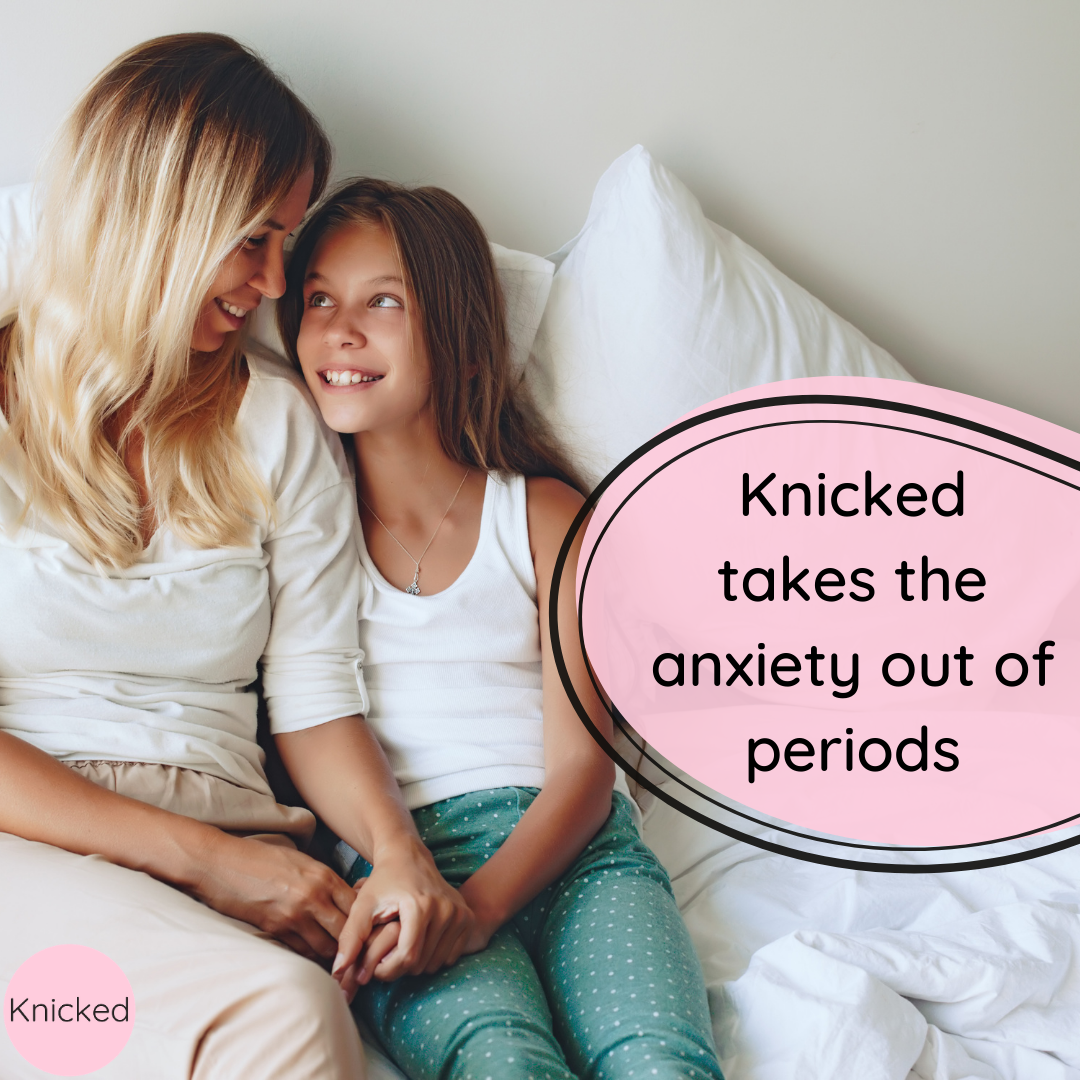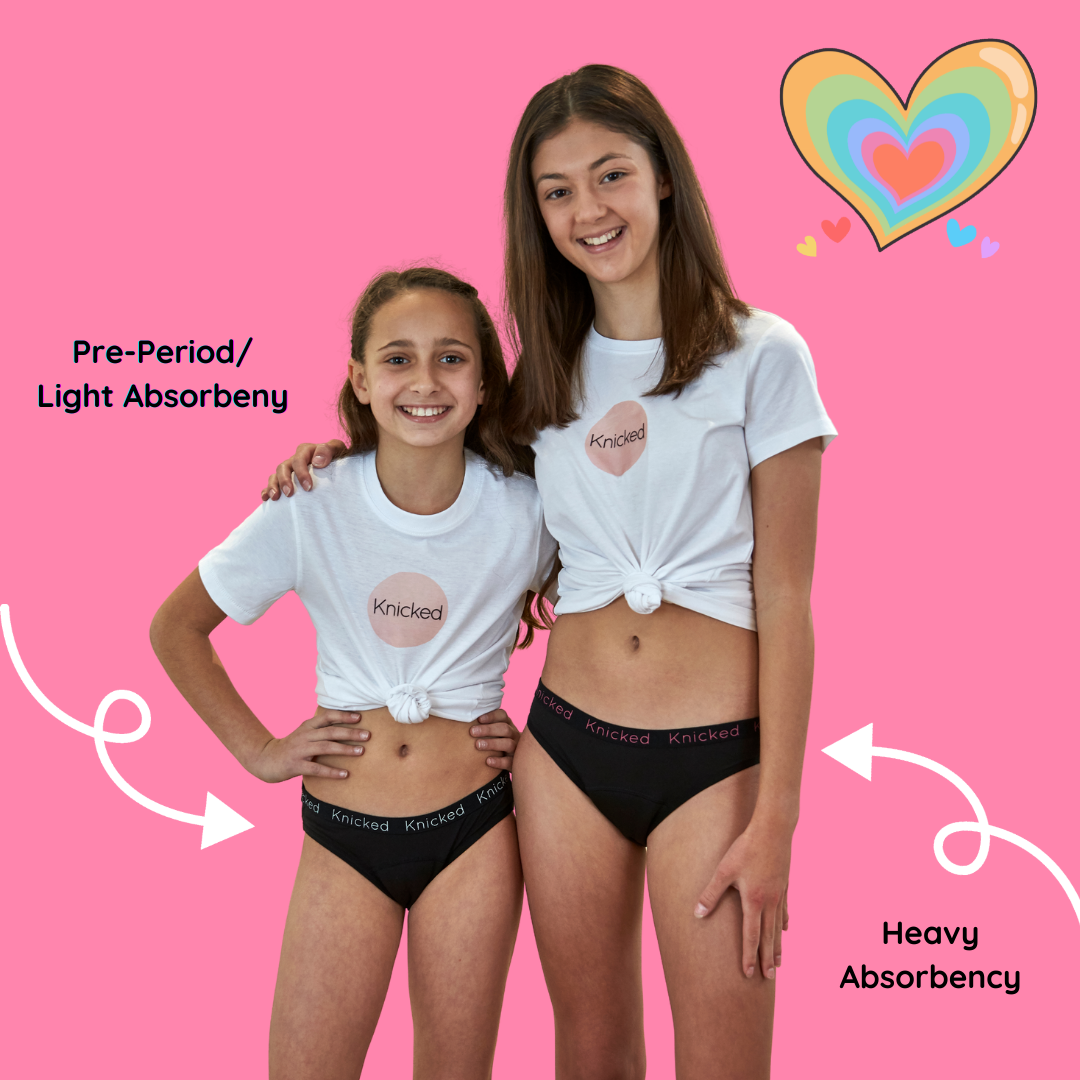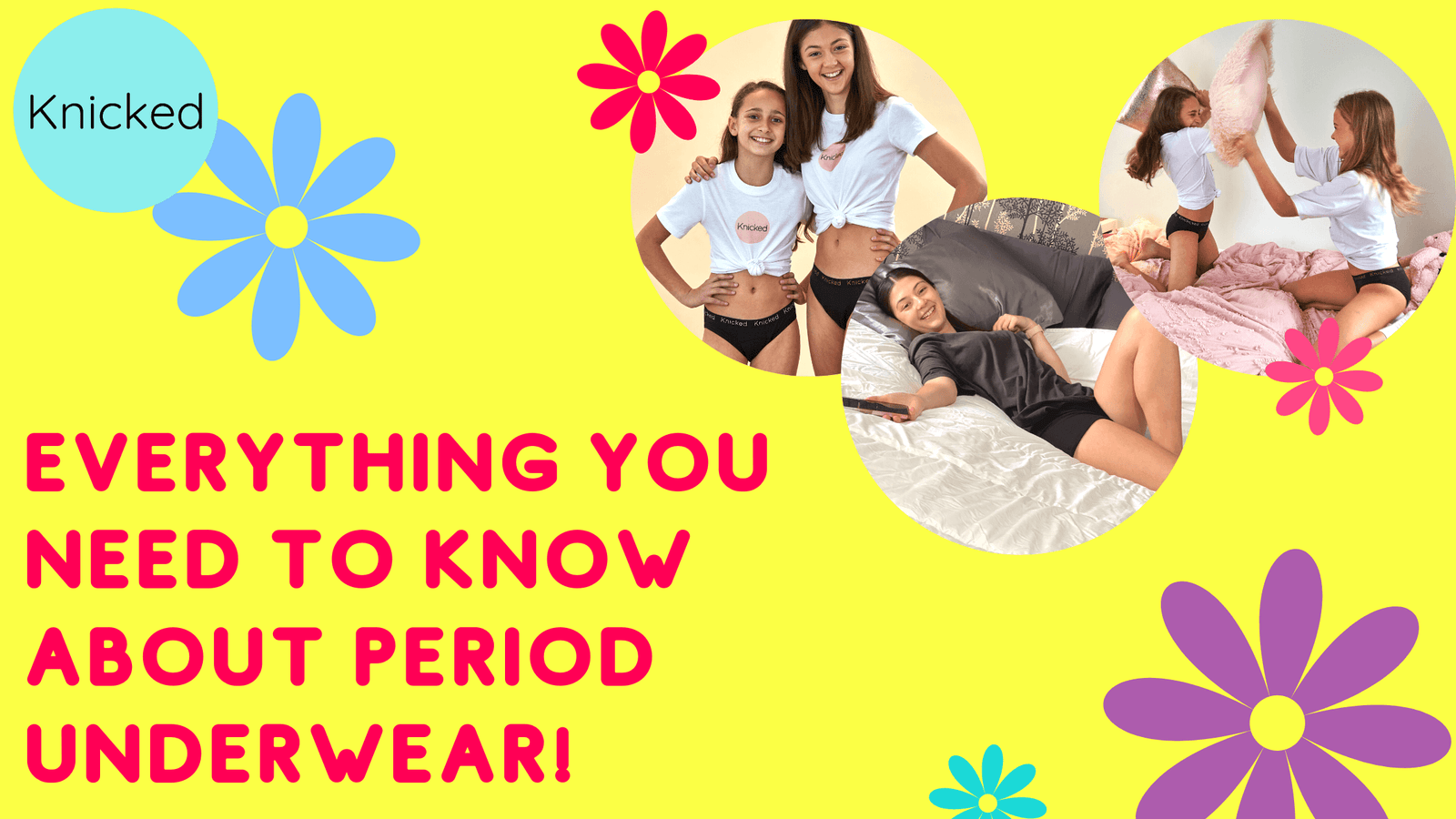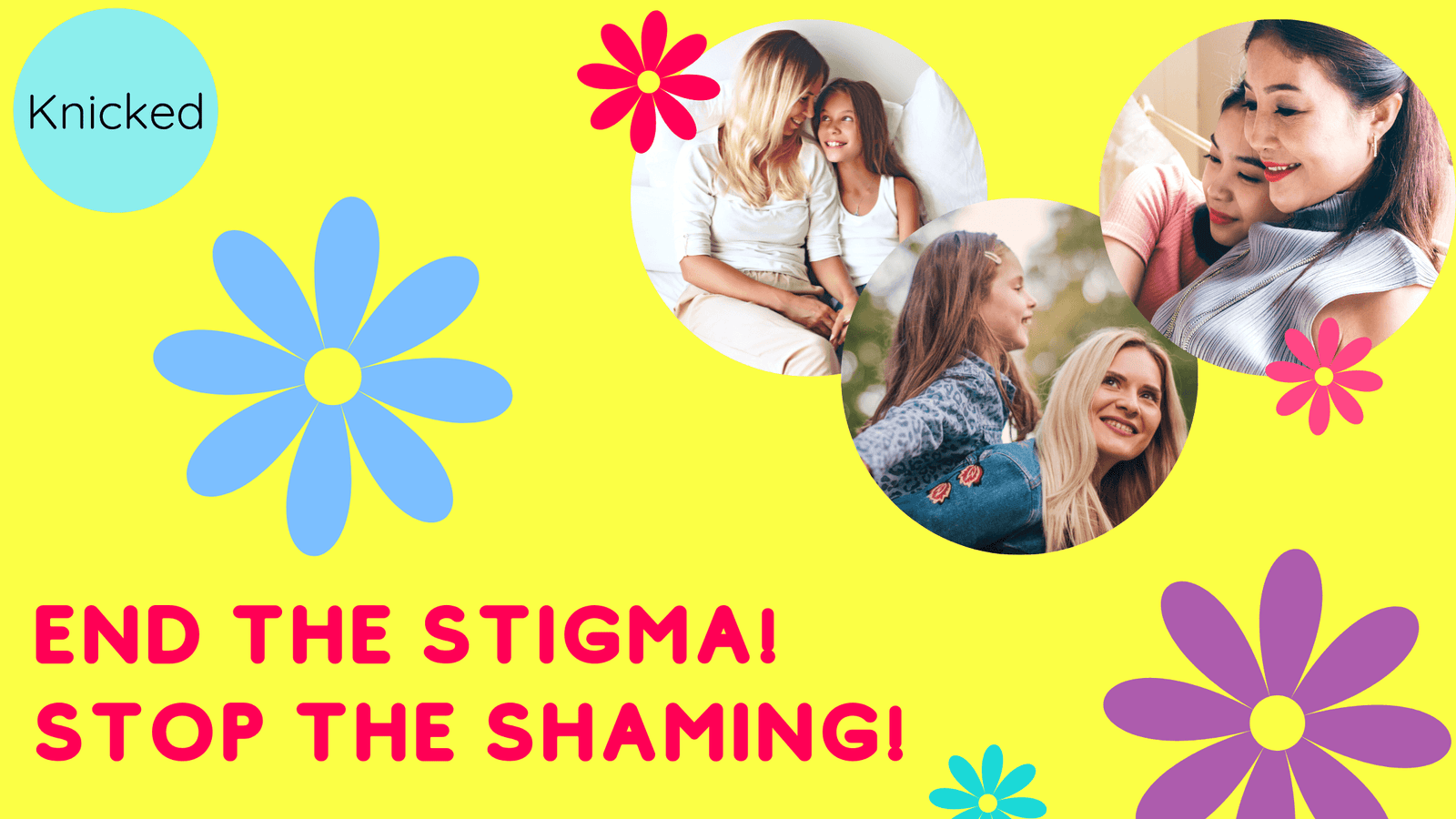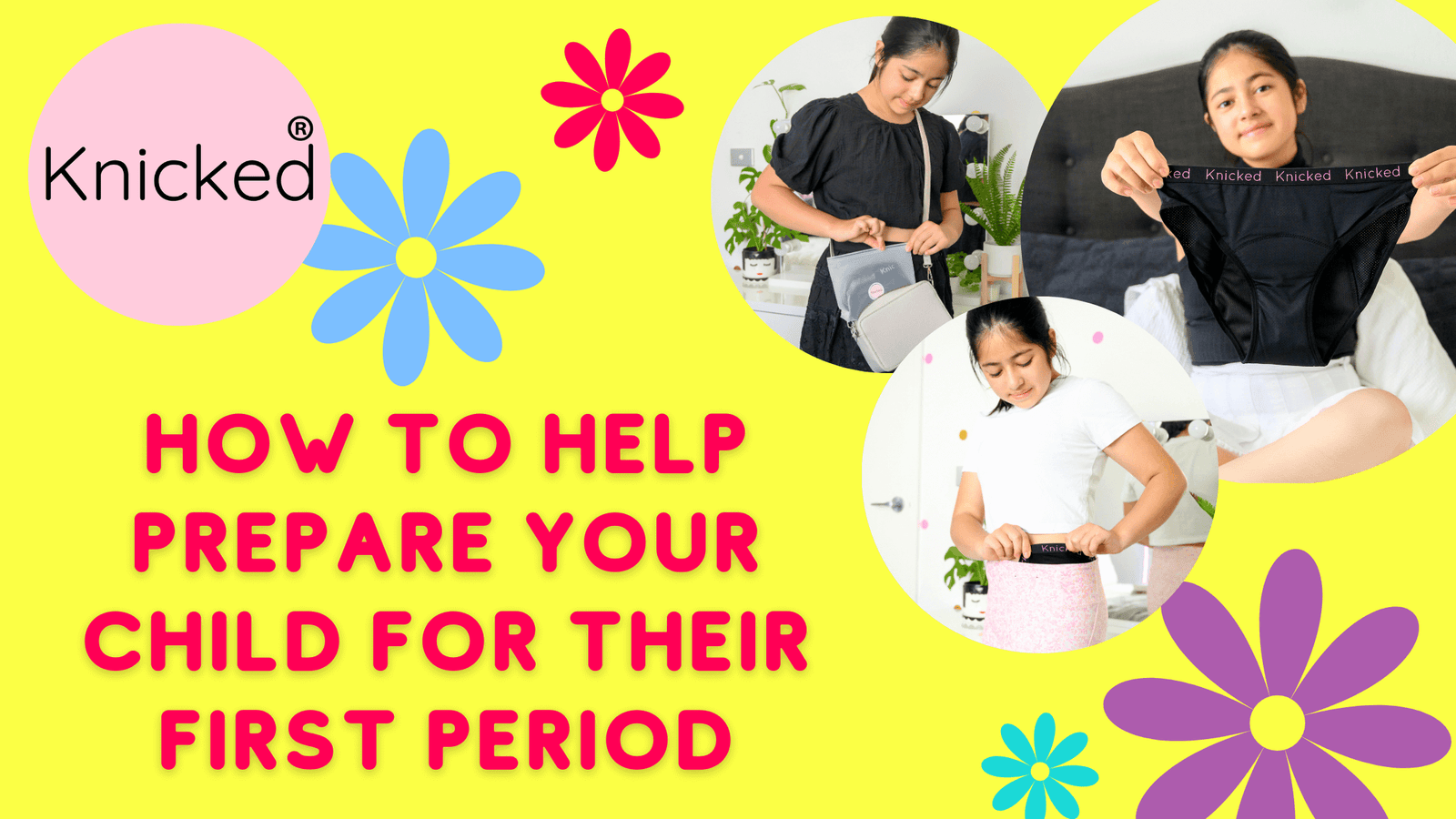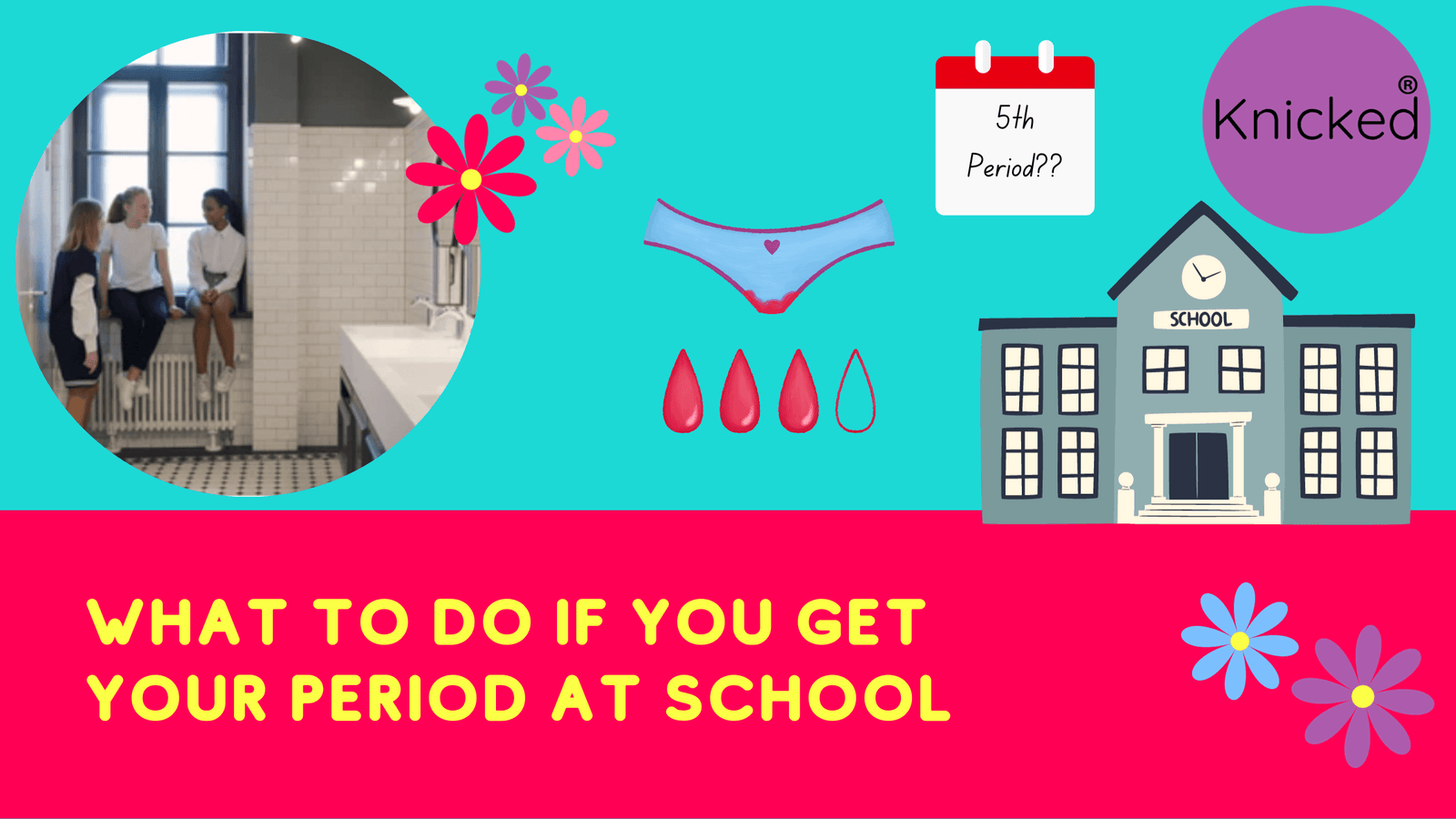Here at Knicked, we talk a lot about periods. What products we use, how to alleviate discomfort… No matter the topic, we are in to hear about and discuss all of the nitty-gritty details!
But not everyone is as open when it comes to talking about periods. Especially our youngsters who are still new to this life change.
And that is completely fine!
Talking about periods, for the first few times, can be AWKWARD, no matter who you’re talking to. But to add in how new it is for tweens (no one feels comfortable discussing things they’ve just started to experience!) and the peaking stage of self-consciousness they’re in (which is natural), talking about periods can be even harder.
Yet it’s still something we need to do.
Why?
Because open conversations about periods build confidence, reduce fear, and support a positive body image FOR ALL GENDERS.
That’s right, just because your tween may not bleed themselves one day, these conversations are still essential to have. Not only will it help with their relationships with others, but every open conversation brings us a step closer to reducing the enduring societal stigma surrounding periods. Plus, if everyone was part of period conversations from the start, period healthcare would be more inclusive, effective, and accessible than we can imagine now, but that’s a conversation for another day.
As promised, here’s how to talk to tweens about periods with ease:
Shift Your Mindset
Parents, caregivers, or any other supporter of our beloved young ones, before you even consider what to say to the soon-to-be-menstruator in your life, you need to reflect on your own experiences with periods. Namely: how you overcame your own discomfort.
Regardless of if you’ve bleed yourself, ask yourself, ‘when I was younger;’
- What did I wish I knew about periods?
- Were there people I could openly discuss periods with?
- Was there anything I heard or experienced that made periods more uncomfortable?
And:
- How do I feel about periods now?
While embarrassment is common, it usually stems from our learned behaviours. This means that if you feel any discomfort when it comes to period talk, with some time and focus, it can be unlearned. It also means that in having a healthy relationship with periods yourself, the young people who look up to you are better equipped to handle when society tries to shame them for having, or talking about, periods, building the armor of resilience and self-confidence before a single conversation is had.
Tip: also ask yourself how often you use innuendos for thinking and talking about periods. If you get squeamish around the correct terms (like ‘period’, ‘menstruation’, and ‘uterus’), then try to use them in your everyday life to further normalise the topic.

Pick the Right Moment
When it comes to the actual ‘period talk’, don’t put pressure on it. Conversations about periods should feel like organic chats, not formal lectures that make everyone predisposed to nerves. They also should be ongoing, so don’t worry if you’re just mentioning periods every now and then, that’s how you build the feeling of normality.
Start discussing periods in casual settings, such as during a walk, in the car, or while unpacking groceries.Opening up this conversation could be as simple as letting your children know that you, or someone in their life, is on their period.
If your children have questions, great! If they don’t, don’t force the topic. Let their engagement guide the depth of the conversation. If you have younger children around too, bring them into the conversation while keeping it age-appropriate. For any age-group, this topic can build over time, so don’t stress about having to get all the information in their heads in one go.
Tip: For tweens nearing their first period, strike up the conversation of, or buy, pre-period underwear, accessible by clicking here. This product is a helpful, non-intimidating starting point for a period chat, as well as a great transition piece as they start needing to prepare for a potential period, but don’t want to have to start wearing other new preventative period products.
Keep It Simple but Empowering!
Once the general concept of periods is a normal topic, or your youngster starts asking questions, keep your communication clear without overwhelming them.
This can include:
- Explaining what a period is and why it happens in plain terms.
- Mentioning how everyone’s experience is different — timing, flow, symptoms.
- Reassuring them that it’s okay to feel unsure or emotional when talking about this topic.
While you talk, be aware of the narrative you’re creating for them.Include how instead of being ashamed, periods are a sign of strength, and getting them means that people are not only growing up, but are healthy.
Tip: Ensure they know that periods are normal milestones, like when people lose their first tooth or start high school!

Show, Don’t Just Tell
When the time is right, bring practical examples into the conversation. For example, show them what a pad, tampon, or period underwear looks like and how they work, or explain how people track their cycle or recognise the first signs that it is coming.
You can also share your own experiences with periods, such as the products you or the other menstruators in your life prefer, what it was like for you to learn about them for the first time, and how you tailor your life during the month to make periods easier for yourself or others.
Tip: Prepare a "first period kit" together — including undies, pain relief, a snack, and a special note from you. For a more detailed guide on how to create a period kit, click here. Even if your young loved one won’t get periods themselves, encourage them to still carry period products or supportive items in case one of their friends or peers ever need them.
Keep the Conversation Going
Whenever you end a conversation on periods, no matter how small, remind your children they can ask questions anytime, even months later.
Build an ongoing, open dialogue by not forcing a conversation to come out of a mention of periods every time. You can also utilise social media by sending them topical or funny period-related content in between other things, reinforcing that periods are a normal part of every aspect of life.
Tip: If your young loved one does get their first period, check in with them and offer things they may need, including space to themselves. You could even give them something special to help with the change, like an heirloom from you or something they've been wanting, to commemorate the change and make them feel more positive.

Remember, you don’t need to have all the answers or confidence to be supportive to tweens. Being honest, kind, and open is more important than being perfect.
If we’ve missed any advice on talking to tweens about periods, feel free to share it with us on our social media, accessible by clicking here, or share your own stories navigating this time of change!

